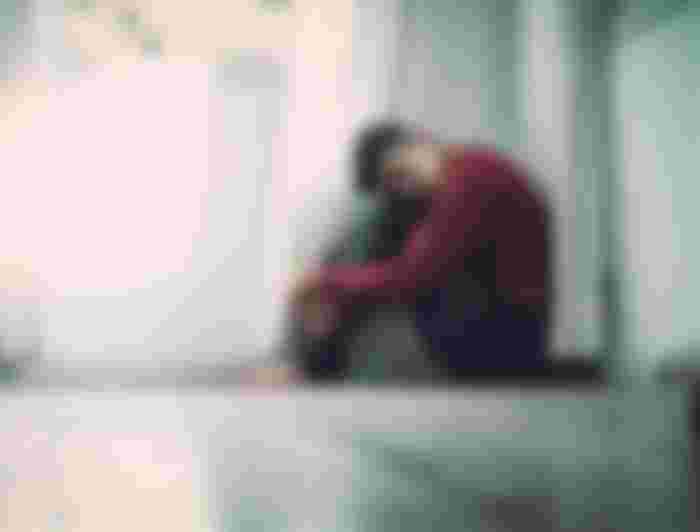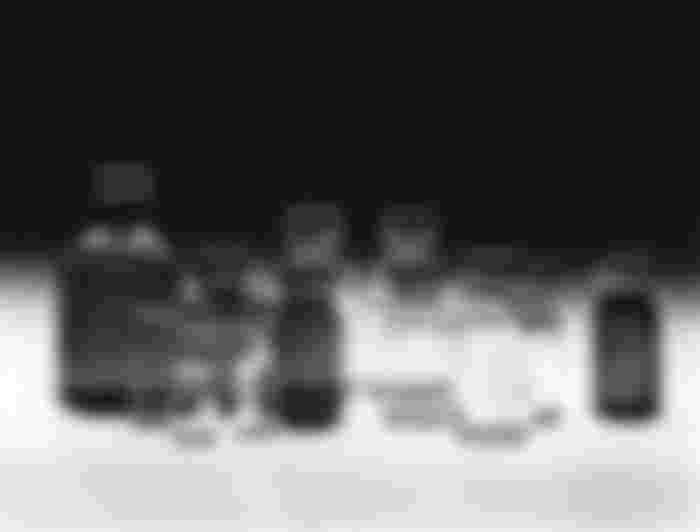Physical illness and stress:
Tough physical illnesses can affect all aspects of your life. Your relationships, activities, beliefs and your social interactions can all be affected. Severe illness can make you depressed, anxious, scared or angry.

It could be because:
We suffer from uncertainty.
What exactly happened?
How do I deal with the pain of surgery or the side effects of medication?
-What will be the benefit of treatment?
We are losing control of our bodies and other situations. I think we have nothing to do.
We feel isolated from family and friends. It is often difficult to talk about illness with relatives. We don’t want to make them think or hurt.
In some cases, physical illness can cause great distress. We can feel anxious or depressed if we have cancer or heart disease. It can disrupt our daily lives here are always thoughts in the head, especially thoughts about the disease or the treatment of the disease.
How do you feel when you are depressed or anxious?
Anxiety or depression overwhelms both our body and mind. Many times the two are at the same time.

Feelings of anxiety:
There are always thoughts in the head, especially thoughts about the disease or the treatment of the disease
The worst that can happen is that it seems to happen. For example, it may seem that the disease will get worse, or we may die.
Chest throbbing (throbbing chest)
Pain or tightness in the muscles
Not being able to relax
Sweat
Rapid breathing (frequent breathing)
Dizziness
It seems that understanding this will make you unconscious
Flatulence or frequent bowel movements.
Feelings of depression:
Always feeling depressed and thinking that this depression will never go away
Lack of enthusiasm in anything in life
Not being able to enjoy anything
Not being able to decide on even small matters
It's always impossible to get tired
Feeling uncomfortable or restless
Loss of appetite and weight loss (in some cases the exact opposite, both hunger and weight gain)
Not falling asleep and waking up early in the morning
Reluctance to have sex
Lack of self-confidence and feeling worthless, incompetent
Exclude others
Getting irritable
Overall frustration about yourself, about the current situation and about the world. It may seem that I will never get better, or it may seem that I am absolutely on the books.
It may seem like suicide. In depression it is often. If you think so, it is better to talk about it, without keeping everything in mind.
Some of its symptoms such as insomnia, nausea or tiredness may be due to your physical illness or its treatment. If you talk to your doctor or nurse about this, they will be able to diagnose the cause. Depression or physical illness?
Why does depression or anxiety increase when you have a serious physical illness?
Stress for any reason leads to depression and anxiety. Treatment of illness and disease causes stress. I think this is the most probable reason.
Some medications (such as steroids) affect brain function. This can lead to depression or anxiety.
Some diseases, such as dysfunctional thyroid gland, affect brain function. It can also lead to depression or anxiety.
Moreover, both depression and anxiety are seen in many cases in ordinary people. So together with anxiety or depression you can have a physical illness.
In which case does your tendency to depression or anxiety increase?
If you have a physical illness then your tendency to mental illness increases
You have been anxious or depressed before
You have no relatives or friends with whom you can talk about your illness
You are female (women are more prone to depression or anxiety than men)
There are many more stresses in your life at this time such as divorce, death of a loved one, job loss, etc.
Your very pain
Your illness can be fatal
You can't do your own work because of illness
The time when your depression or anxiety tends to increase
When you first find out about your illness
After major surgery, or if your treatment is more painful
If you get sick again after being healthy for some time. Such as a second heart attack, or exacerbation after the cancer has subsided
If the treatment is not effective.
When should you seek help? If you have depression or anxiety
Exceeds the level; Such anxiety or depression has never happened to you before
Its prevalence is not decreasing with time
Your work, hobbies, relationships with relatives and friends are deteriorating
It seems that life has no meaning, or that everyone is better off without you
You may not realize that if you are depressed
You think that the cause of your discomfort is physical illness
You feel lazy or weak
Others may reassure you. They may say that asking for help is not a sign of weakness. Some people immerse themselves in work to deal with depression or anxiety. In some cases it works, but in many cases it makes people more tired. Depression or anxiety often results in headaches, insomnia or body aches instead of feeling bad or scared.
You can talk to your friends or relatives about it, they can help you. But if that doesn't work, talk to your doctor or nurse.
Is it reasonable to ask for help?
When we are physically ill, we may feel hesitant to ask for help. It may seem
The cause of your suffering is being understood - there is nothing more to do about it
You don't want people to think you're ungrateful, like you're complaining about your doctor or nurse
If you think you are having a mental illness, it may be difficult to treat your physical illness
You may think that the doctor or nurse will take care of your physical ailments, they have no headaches about mental distress
It is true that we understand that someone with a physical illness can be depressed or anxious. That doesn't mean there's nothing left to do. The doctor or nurse wants your overall well-being. It also includes your depression or anxiety. They can help you
Knowing the anxiety that is rising in your mind in this situation
Whether you know enough about your disease and its treatment
Helping you express your feelings
You are diagnosed with the need for treatment for anxiety or depression.
How can depression or anxiety be treated?
There are many professionals who can help you. These include your homeopath, counselor, psychotherapist, psychologist, and psychiatrist. The treatment will depend on your symptoms, the severity of your depression or anxiety, and the circumstances around you. Its treatment is sometimes talking, sometimes taking antidepressant pills, sometimes both.

That treatment is through talking
It can be difficult to express your true feelings, even to a close friend. It is relatively easy to do to a professional. He can show you the way to solve the problem, and help you evaluate your problem. The treatment that comes with talking is usually not long-term, requiring no more than eight sessions. You can see a therapist individually or with a group. If you have a partner or carer, it is better if he is also involved.
There are many ways to get treatment through words, but in all cases some words apply:
Mutual trust between patient and therapist
Opportunity to talk openly about your thoughts, feelings and problems
Anxiety, distressing feelings and trying to solve problems
What will be the benefit?
Just talking to someone can feel scary or meaningless. But, once started, most patients (severely physically ill) benefit from it.

How does it work?
Your idea of what is going on in your mind will be clear.
This will make it easier for you to deal with your thoughts, feelings and problems. You can believe it but not comment on it, it is helpful to talk to someone like that.
How long does it take to work?
Some people work from the beginning. It only takes light to be able to talk about your thoughts. In others it takes a few weeks.
Antidepressant pills
If your depression or anxiety is severe or long-term, taking antidepressant pills for a while may be helpful. It reduces the severity of depression or anxiety, and they can cope with their problems again and enjoy life. These are not sleeping pills, although they will calm you down by reducing your restlessness. It also works for pain or difficulty sleeping.
What will work immediately?
Probably not. This is the difference between anti-depressant pills and other medications. Doesn't work right away. Depression does not subside in the first two weeks. Some of the symptoms are already relieved. For example, after a few days, many people notice that their anxiety has decreased or they are getting better sleep.
What are its side effects?
Like all medicines, antidepressants have some side effects. These are usually; Not more severe and its incidence gradually decreases during treatment. Different antidepressant pills work in different ways. Your doctor will tell you what could happen. He will want to know if you have any worries. You can use painkillers, antibiotics or birth control pills with it if needed. However, do not drink too much. If you use alcohol and antidepressants together, you are more likely to get more sleep. Your doctor will tell you if you will have difficulty taking antidepressant pills with the treatment you are undergoing for your physical illness.
What can you do to help yourself?
In addition to professional help, you will benefit if you do these yourself
Let your loved ones know your thoughts. You may be surprised it may not be painful, but it may ease your pain.
Ask your doctor about your illness. Find out what questions you have about your treatment or illness. If you know, it's easy for you to deal with.
Eat a balanced diet. If you have cravings for anxiety or depression, you may lose weight. This can increase the incidence of your physical illness.
Try to reconcile your illness and your life. This position is somewhere between “I can’t do it for illness” and “I will do it despite the illness” Take care of yourself. Exercise, relax and do your own chores in your daily routine.
Do not try to bring joy to the mind through excessive drinking. This can increase your depression and anxiety. It can also be a reaction to your medication.
If sleep is disturbed, do not wear too much. Depression or anxiety can lead to difficulty sleeping. If your state of mind improves, you will sleep properly.
Do not increase, decrease or stop the medication without talking to the doctor. Talk to your doctor before using anything else. Inform your doctor or nurse if there are any difficult side effects. Don't put up with it.
How can other family members or friends help?
In most cases, friends or relatives are the first to notice that someone is suffering from depression or anxiety over a physical illness. If someone close to you is depressed, ask them for help. Tell him that depression and anxiety are common and that most cases are completely cured. Showing a professional (such as a psychiatrist or psychologist) is not a sign of weakness, or a cause of disrepute for the patient or his family.
Spend time with someone who is depressed or anxious. Don’t tick, encourage them. Encourage them to talk or do things on a daily basis.
Assure those who are depressed or anxious that they will get better, even if they may not believe it at the time.
Ask them to eat a balanced diet and to refrain from excessive drinking.
If their depression or anxiety worsens, or they say that there is no point in surviving or thinking of committing suicide, then give it enough importance. The doctor or nurse should be fully aware of this.
It is better to treat the sick person. Tell your doctor if you have any concerns about treatment.
If a person is physically and mentally ill, caring for them is a very tiring job. If you feel threatened, get help.
If you like this plz like comment on this post.


